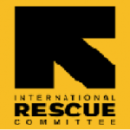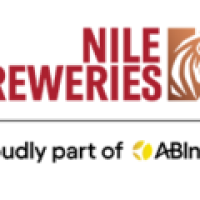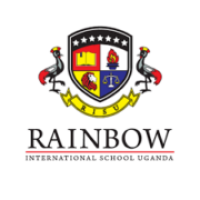The International Rescue Committee (IRC) is a leading humanitarian and development organization working in more than 40 countries and 26 U.S. cities to help people whose lives and livelihoods are shattered by conflict and disaster to survive, recover and gain control of their future.
The IRC has been operating in South Sudan since 1989. Our programs have provided critical Health, Nutrition, Protection and Rule of Law, Child Protection, Education and Economic Wellbeing (EWB) services in eleven field sites, covering five of the ten states and one administrative area. With two offices in Northern Bahr el Ghazal- NBEG (Aweil East and South), five offices in Unity State (Bentiu, Koch, Mayendit, Ganyliel and Nyal), one in the Ruweng Administrative Area (Jamjang) covering operations in the Ajuong Thok and Pamir Refugee Camps and the host community, one office in Rumbek town covering the whole of Lakes, one office in Maban covering the refugee response and one field office in Central Equatoria (Juba)-urban programming together with the Country office.
Background and Objectives of EFASS
FCDO funded Education For All South Sudan (EFASS) will directly support 350,000 girls and children with disabilities nationwide to access education through cash transfers, whilst investment in behavior change, in-service teacher training, and catch-up classes will improve both access and learning for many more nationwide. Systems strengthening and incentivising greater ownership of, and investment in, the education sector by the Government of the Republic of South Sudan will help strengthen the social contract and build functioning education institutions to enable future development. Geographically targeted pilots, including an innovative health co-investment, will support life skills development, address additional barriers faced by children with disabilities, enable improved resilience (including to climate shocks), and support peacebuilding, including to help prevent drop-out. EFASS aims to build on the existing success of the multi-donor platform which was established under the Girls’ Education South Sudan Program to continue current coordinated donor investment in shared sectoral priorities.
EFASS will target the following two outcomes:
• Children, especially girls and those living with disability, can safely access 12 years of quality education which equips them with the knowledge and skills they need to thrive.
• Quality is improved through increased investment (including as a result of increasing government budget allocation and execution) and strengthened national policy in areas critical to inclusion.
Scope of Work
The Technical Director will have primary responsibility for overseeing, supporting and mentoring Technical Leads for Education, Gender and Inclusion, School Planning & Management and Volunteers Teachers’ Development etc. to achieve the stated goals of the Project. The Technical Director will bring exceptional experience, expertise and commitment to girls’ education and empowerment in South Sudan. The Technical Director is expected to have strong skills in program design and development, advocacy and networking with international and national institutions and development agencies which promote girls’ education and empowerment. Broad technical knowledge of education (formal and alternative), systems strengthening, gender programming, including women and girls’ economic empowerment, gender and poverty-related barriers will be essential.
This is a senior position which requires outstanding leadership, strategic thinking, and organizational, team-building and representational skills. The Technical Director role is envisaged to be full-time and will be based in Juba, South Sudan.
Major Responsibilities:
• Lead the development and implementation of the programs framework in coordination with partners and cross-sectoral advisors to drive towards the programs objectives.
• Ability to perform at a senior management level including managing staff in a matrixed system with a focus on adaptive management.
• Oversee all program technical contributions, specifically context-driven and evidence-based approaches to improving inclusive access to education, strengthening the quality of basic education, and enabling systems-level actors to bolster support for and investment in education in order to reach program outcomes.
• Lead team in making data-driven course-correction and programmatic improvements that enable achievement of program outcomes, applying collaborative, flexible, and practical thinking.
• Identify issues and risks related to program implementation in a timely manner and ensure appropriate program adjustments.
• Support the development of the monitoring, evaluation, and learning plan jointly with key education system actors and ensure linkages between evidence generation, global dialogue, and country actions while supporting global leadership.
• Oversee and review technical writing products and deliverables.
• Oversee on-going quality assurance and quality improvement for technical activities.
• Perform other duties and responsibilities as required.
Please note that the JD is high level and indicative only at this stage and may be subject to change once the Terms of Reference for the program is released and as the opportunity develops. This position will be contingent on the outcome of the bid.
Safety & Security Situation: All staff must comply with all IRC South Sudan by security policies and procedures.
Standards for Professional Conduct: The IRC and IRC workers must adhere to the values and principles outlined in IRC Way – Standards for Professional Conduct. These are Integrity, Equality, Service, and Accountability. In accordance with these values, the IRC operates and enforces policies on Beneficiary Protection from Exploitation and Abuse, Child Safeguarding, Anti Workplace Harassment, Fiscal Integrity, and Anti-Retaliation.
IRC is an Equal Opportunity Employer IRC considers all applicants based on merit without regard to race, sex, color, national origin, religion, sexual orientation, age, marital status, veteran status or disability.












